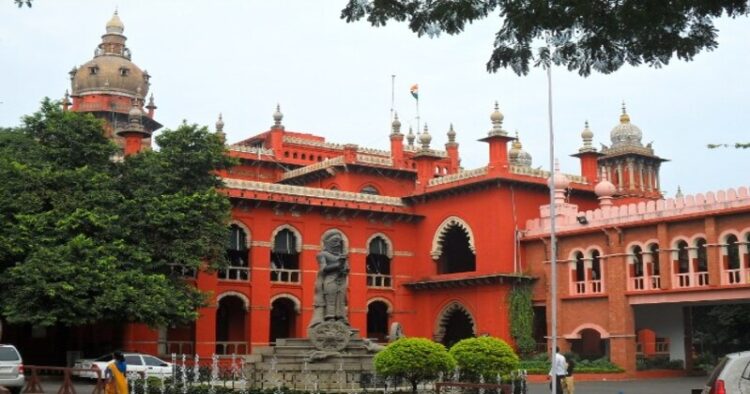In a recent ruling on Thursday, March 7, the Madras High Court issued a stern condemnation of State Minister Udhayanidhi Stalin’s comments regarding Sanatana Dharma and the caste system. The Court emphasised that the contemporary understanding of the caste system is relatively young, distancing it from the ancient Varna system.
Justice Anita Sumanth, in the original judgment, acknowledged the persistence of caste-based disadvantages while highlighting the relatively recent emergence of the current caste system. She remarked, “Origins of the caste system as we know it today are less than a century old. We can’t lay blame on the ancient Varna system alone.”
However, the Court’s latest revision altered the language, emphasising the modern categorisation of castes. The updated judgment, available on the Madras High Court’s website, replaced the line referring to the century-old origins of the caste system with a focus on the contemporary categorisation of castes.
In its initial ruling, the Court recognised the presence of 370 registered castes in Tamil Nadu and acknowledged the tensions among them. Justice Sumanth pointed out that the hostility between different caste groups partly stems from the benefits associated with caste affiliations. She stated, “This Court agrees unequivocally that there are inequities based on caste present in society today… This ferocity among persons belonging to different castes is also, in part, on account of the benefits made available to them.”
The order issued by the Madras High Court, responding to a petition filed by the Hindu Munnani against State Minister Udhayanidhi Stalin, State Minister PK Sekarbabu, and Member of Parliament A Raja, has garnered significant attention. The petition raised concerns about their continued tenure despite controversial statements made by Stalin.
The controversy stemmed from remarks made by Stalin during a conference hosted by the Tamil Nadu Progressive Writers Artists Association in Chennai on September 2, 2023. In his address, Stalin called for the eradication of certain elements, stating, “Just as dengue, mosquitoes, malaria, and coronavirus must be eradicated, we must eradicate Sanatana.” These remarks sparked considerable indignation and prompted the Hindu Munnani to file three writ petitions in the High Court, objecting to Stalin’s statements.
The petitions sought a writ of quo warranto, demanding an explanation from Stalin, Sekarbabu, and A Raja regarding their continued occupancy of public office following their participation in a conference advocating for the extinction of Sanatana Dharma.
In response to the petitions, Stalin clarified that his remarks were directed at the caste system rather than Hindus or Hinduism. Despite this explanation, the High Court, on Wednesday, condemned Stalin’s remarks but stopped short of removing him from his ministerial position. The Court cited legal constraints, stating that it could not issue such a directive unless Stalin was legally disqualified from holding the position.
Furthermore, the Court expressed concern over the propagation of misinformation about Sanatana Dharma but declined to issue a writ of quo warranto to remove Stalin as minister. The High Court asserted that attacking Sanatana Dharma over the current caste system was erroneous, emphasising the uplifting and virtuous nature of Sanatana Dharma. “The restrictive meaning attributed to the phrase Sanatana Dharma is clearly erroneous as Sanatana Dharma connotes that eternal, perpetual and universal code of conduct that is uplifting, noble and virtuous,” the Court stated.
The Court accepted that people have attacked one another throughout history in the name of caste and ruled unambiguously that such acts are unacceptable. To address past injustices, the Court stated that constant repair and damage control, as well as honest introspection on potential solutions to correct injustices and create equality, are required.
Regarding whether these problems might be put wholly on the ancient Varna system, the Court stated, “This Court agrees unequivocally that there are inequities based on caste present in society today and that they are to be eschewed. However, the origins of the caste system as we know it today are less than a century old. Can one lay the blame for these torturous circumstances entirely on the ancient Varna system? The answer is emphatically in the negative.”
Furthermore, the Court held that the Varna system considers a vocation rather than birth as the basis for partition. “The varna system does not contemplate division based on birth, but based on avocation. The system was designed to work towards the smooth functioning of society centuries ago where the chief avocations were identified based on the then needs of society. The relevance of such a system today is itself moot,” it stated.
The Madras High Court’s response underscores the complexities surrounding freedom of expression, religious sentiments, and the responsibilities of public officials in India’s diverse socio-cultural landscape.




















Comments